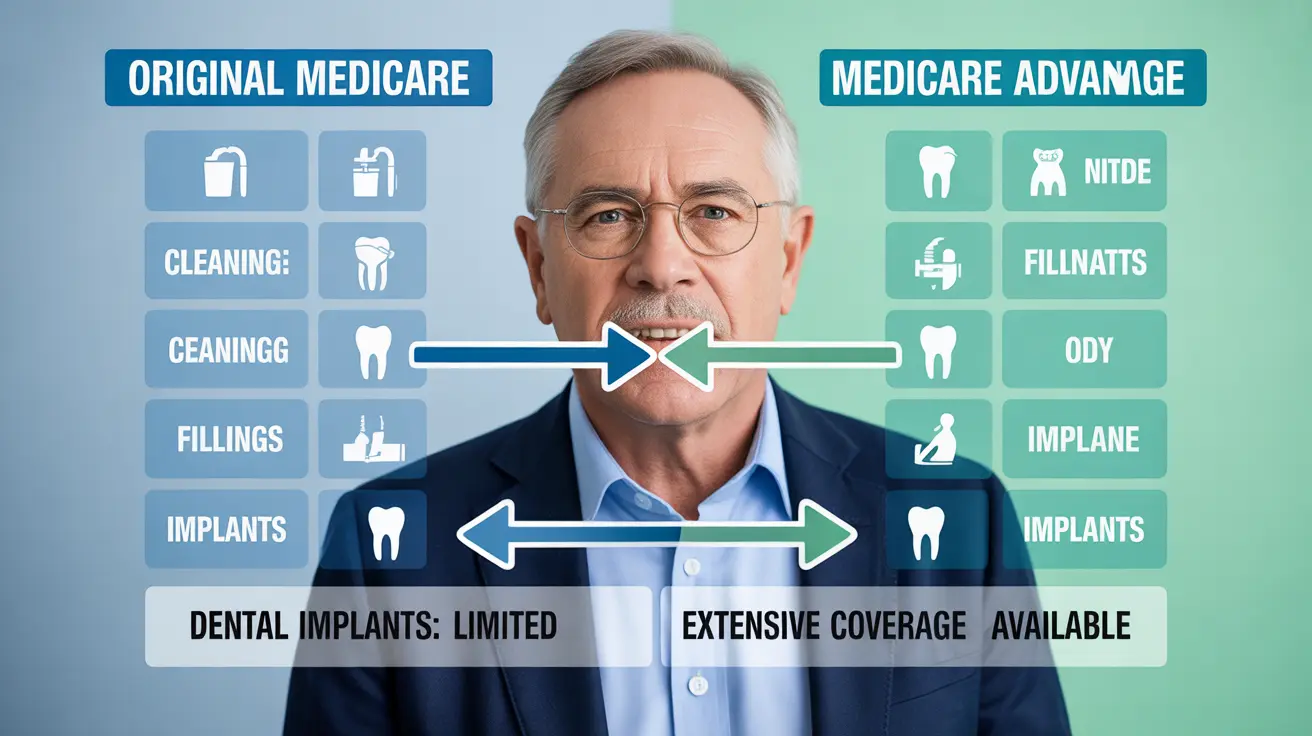Navigating Medicare coverage for dental procedures, especially dental implants, can be complex and often confusing. Many Medicare beneficiaries are surprised to learn that coverage for dental services varies significantly depending on their specific plan and circumstances.
This comprehensive guide will help you understand whether Medicare covers dental implants, explore Medicare Advantage options, and discover alternative solutions for making dental implants more affordable.
Original Medicare and Dental Coverage
Original Medicare, which includes Part A (hospital insurance) and Part B (medical insurance), generally does not cover most dental procedures, including dental implants. This limitation extends to routine dental care, cleanings, fillings, extractions, and dental devices.
However, there are rare exceptions where Original Medicare might cover dental services if they're considered medically necessary as part of a covered procedure. For example, Medicare might cover dental services needed for:
- Jaw reconstruction following injury or disease
- Dental examinations before kidney transplant or heart valve replacement
- Treatment of oral infections before surgery
Medicare Advantage and Dental Implants
Medicare Advantage plans (Part C) often provide more comprehensive dental coverage than Original Medicare. These plans are offered by private insurance companies and may include coverage for dental implants, though benefits vary significantly between plans.
Finding Medicare Advantage Plans with Dental Coverage
To find a Medicare Advantage plan that covers dental implants:
- Compare plans during the annual enrollment period
- Review plan documents for specific dental benefits
- Contact insurance providers directly about implant coverage
- Consult with a licensed Medicare insurance agent
Coverage Requirements and Limitations
Even when Medicare Advantage plans cover dental implants, they typically have specific requirements and limitations:
- Annual coverage maximums
- Waiting periods before coverage begins
- Network provider requirements
- Prior authorization requirements
- Cost-sharing obligations
Alternative Payment Options
When Medicare coverage isn't available or sufficient, several alternatives can help make dental implants more affordable:
- Dental discount plans
- Dental savings accounts
- Payment plans through dental offices
- Third-party medical financing
- Dental schools or clinical trials
Frequently Asked Questions
- Does Original Medicare cover dental implants or any related dental procedures?
No, Original Medicare (Parts A and B) does not typically cover dental implants or routine dental procedures. Coverage is only provided in specific medical situations where dental care is an essential part of a covered procedure.
- Can Medicare Advantage plans include coverage for dental implants, and how can I find one that does?
Yes, some Medicare Advantage plans include dental implant coverage. To find one, compare plans during open enrollment, review plan documents carefully, and contact insurance providers directly to confirm specific coverage details.
- What conditions make dental implants medically necessary for Medicare Advantage plan coverage?
Medical necessity for dental implants typically involves situations such as jaw reconstruction after trauma, cancer treatment-related tooth loss, or severe bone loss affecting basic functions. Each plan defines medical necessity differently, so verify specific requirements with your provider.
- Are there additional costs or premiums if my Medicare plan covers dental implants?
Yes, Medicare Advantage plans that include dental implant coverage often have higher monthly premiums. Additionally, you may be responsible for copayments, deductibles, and costs beyond annual coverage limits.
- What alternatives are available if Medicare does not cover the cost of dental implants?
Alternative options include dental discount plans, dental savings accounts, payment plans through dental offices, third-party medical financing, and seeking treatment at dental schools or clinical trials. Some patients also consider traveling to locations with lower dental care costs.




